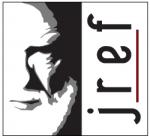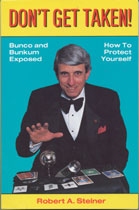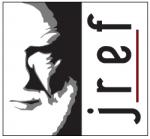Chelation therapy is a long-time staple of medical quackery, but it isn't tested as often as it might be. Here's a curious report of a recent clinical test published in JAMA showing that chelation therapy  chelationdoesn't make any difference in heart attack, stroke, hospitalization, surgeries, etc, outcomes.
chelationdoesn't make any difference in heart attack, stroke, hospitalization, surgeries, etc, outcomes.
The report is curious -- and so is the publication of the article -- because the JAMA publisher editorializes against the use of chelation therapy yet the director of the study appears to be a believer, clinging to a very small improvement of outcomes for chelation when all the outcome variables are combined.
There is a strong editorial criticizing the methodology of the study, which unfortunately is behind a paywall that many won't be able to access. It notes that "clinics" purveying quack treatments were the sites of 60% of the work. This might help explain why o
Your Common Sense Can Fail You
 JREF LogoMy third article for the James Randi Educational Foundation's "Education Initiative," whose purpose is to promote teaching of critical thinking and skepticism, has been posted. Please take a look if you get a moment.
JREF LogoMy third article for the James Randi Educational Foundation's "Education Initiative," whose purpose is to promote teaching of critical thinking and skepticism, has been posted. Please take a look if you get a moment.
In this article, I try to convince readers that common sense is not a good replacement for scientific inquiry, and provide a few examples that teachers of critical thinking can use.
CLICK HERE to read it.
Which Aztec Artifacts are Fake? Expensive Ones.
Aztec "crystal skulls" make neat displays and fiction. But recent  Crystal Skullanalyses of several in museums show they're fake. CLICK HERE to read the full story.
Crystal Skullanalyses of several in museums show they're fake. CLICK HERE to read the full story.
Please join me on Monday, April 1st at 7 pm for the Ohlone College Psychology Club Speaker Series' presentation of "Bryan & Baxter: What THEY Don't Want You to Know," a fun-filled one hour romp  Bryan & Baxterthrough some of Bryan & Baxter's investigations of paranormal claims.
Bryan & Baxterthrough some of Bryan & Baxter's investigations of paranormal claims.
Bryan & Baxter operate out of in Denver, CO, and have investigated the claims of dozens of haunted houses and businesses, cryptozoological creatures, possessions, etc. Their presentation will include a demonstration of the ideomotor effect, video clips from some of their more entertaining investigations, and even a live "exorcism" on stage!
Tickets are $15 for general admission ($10 for students with ID), and can be purchased by
CLICKING HERE.
The Great Airship of 1897
J. Allan Danelek: The Great Airship of 1897: a Provocative  The Great Airship of 1897Look at the Most Mysterious Aviation Event in History. Adventures Unlimited Press 2009. (A review by Norman Sperling, February 10, 2013.)
The Great Airship of 1897Look at the Most Mysterious Aviation Event in History. Adventures Unlimited Press 2009. (A review by Norman Sperling, February 10, 2013.)
A mysterious bright light in the night sky sparked this big flap at the end of the 1800s. It was unexpected and unexplained. Reports grossly contradict one another, so investigators can favor very different inferences, interpretations, and explanations simply by selecting different reports to prefer.
In the 1800s, no one considered the light to be a space ship from another planet. Paranormal boosters have made that case more recently. Since this book's author energetically investigates paranormal and Fortean matters, I was all prepared for the author to go Paranormal.
He never did. The one place where the paranormal is invoked by others, Danelek dismisses it tersely. This book has nothing at all to do with the paranormal. Every explanation is purely naturalistic. Danelek invokes real physics,
As some of you may recall, I recently hosted James Randi at Ohlone College, where he delivered a wonderfully entertaining  An Honest Liartalk on “Prophecy, Divination, and Faith Healing” to an adoring overflow crowd.
An Honest Liartalk on “Prophecy, Divination, and Faith Healing” to an adoring overflow crowd.
That weekend, I was lucky to also spend time with a film crew who were making a documentary about Randi’s life entitled “An Honest Liar: The Amazing Randi Story.” Heading up this endeavor are Tyler Measom and Justin Weinstein, both talented and accomplished documentary filmmakers. Since that time, Tyler and Justin have kept in touch, and they recently wrote to ask that I help spread the word about their new approach toward completing this important, and no doubt entertaining, work.
Please
This is from an obituary composed by Robert Schaeffer. Other Robert A. Steiner (1934-2013) Magician and skeptic Robert A. Steiner died on January 4, 2013 in a nursing home in Concord, California, at age 78. A longtime resident of the San Francisco Bay area, Steiner was a Fellow of the Committee for Skeptical Inquiry, and spoke at several CSI(COP) conferences. A professional magician, he was a former president of the Society of American Magicians, and a member of the Magic Castle in Hollywood. He also was a Certified Public Accountant. Any social event where Steiner was present typically had him giving an impromptu public demonstration of “psychic powers.” He always explained to audiences afterward that he had fooled them with a trick. He was also a life member of Mensa, and frequently hosted social events for Mensa, for skeptics, and other friends, at his home in the East Bay. These events typically included a demonstration of his “psychic” powers, always delivered in a presentation filled with humor. For a number of years, Steiner sponso
The Voynich Manuscript is just as good a story now as when I first read about it 50 years ago. If you're not familiar with The Voynich Manuscript was probably written in the early 1400s, probably in Europe, possibly in Northern Italy. Most of it resembles an herbal (though the plants are unrecognizable), plus sections whose pictures suggest astrology and pharmacy, plus lots of naked and clothed women (only the naked ones get mentioned much), and less-understandable illustrations and pure-text pages. The text appears to be written in a cipher, which has tantalized and taunted people since the 1500s. No one has ever cracked it. Not only is this book truly, deeply weird, so are several of t
Your Beliefs Are Malleable As some of you may recall, I was recently asked to join the James Randi Educational Foundation's "Education Initiative," My second article, entitled "Your Beliefs are Malleable," was recently posted. Its topic is cognitive dissonance, and it focuses on how it can be applied to teaching students to evaluate their beliefs in a more rational way. CLICK HERE to check it out. Dr. Mehmet Oz's November 28th, 2012 episode is bringing him On the episode were Julie Hamilton, a representative of the National Association for Research and Therapy of Homosexuality (or NARTH), as well as the Gay, Lesbian & Straight Education Network (GLSEN), who said later that they were not aware that NARTH would be represented, and that they would not have participated had they known. NARTH's claim that individuals can change their sexual orientation was one of the main topics of my recent talk for the Bay Area Skeptics, and the scientific community (The American Psychology Association, the American Psychiatric Association, The National Association of Social Workers, among many others) strongly condemn these practices as ineffective, unsupported by
BAS Founder Bob Steiner Dies
 Bob Steinertributes will follow:
Bob Steinertributes will follow:
 Voynich Manuscript it, Wikipedia's article hits the highlights, and its bibliography gives a number of ways to dig deeper.
Voynich Manuscript it, Wikipedia's article hits the highlights, and its bibliography gives a number of ways to dig deeper.
 JREF Logowhose purpose is to promote teaching of critical thinking and skepticism.
JREF Logowhose purpose is to promote teaching of critical thinking and skepticism.
 Dr. Mehmet Ozgrief due to its investigation of so-called "Ex-Gay" therapies, techniques designed to help someone change his or her sexual orientation from gay to straight.
Dr. Mehmet Ozgrief due to its investigation of so-called "Ex-Gay" therapies, techniques designed to help someone change his or her sexual orientation from gay to straight.
